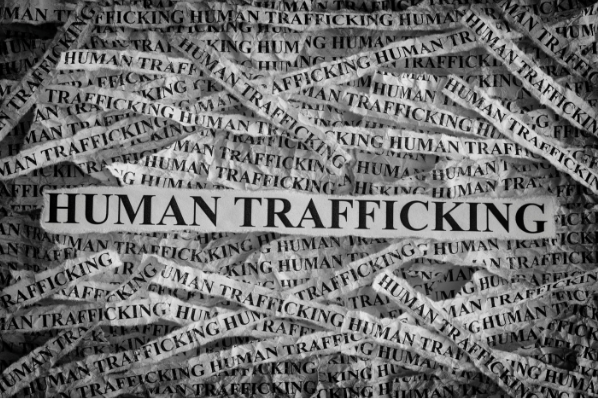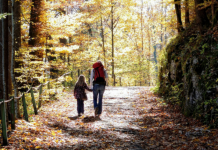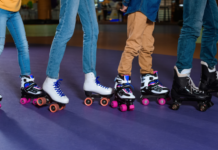 I recently attended a talk by Lighthouse for Life, a non-profit group that raises awareness about human trafficking with my college students. I figured it was a good thing to talk about with them, but it is hard to think that something like this can happen not only in the United States and in Columbia. Nearby Atlanta is a major hub for human trafficking and I-95, which runs through our state and up the Eastern Seaboard, is a means through which many trafficked people are transported.
I recently attended a talk by Lighthouse for Life, a non-profit group that raises awareness about human trafficking with my college students. I figured it was a good thing to talk about with them, but it is hard to think that something like this can happen not only in the United States and in Columbia. Nearby Atlanta is a major hub for human trafficking and I-95, which runs through our state and up the Eastern Seaboard, is a means through which many trafficked people are transported.
When I first heard about there being more slaves today than in any other time in history, there were 27 million. (LZ7 and Matt Redman did a song about that number and this issue entitled 27 Million.) Now, according to the International Justice Mission, there are over 40 million slaves currently.
Even as I showed documentaries to my students in class about this issue, it is hard to imagine something like this happening here. But it does. South Carolina’s Attorney General’s office has an anti-human trafficking task force. There are national and local resources, but what does this all mean to YOU personally?
As our Lighthouse for Life speaker said, someone may be enslaved and you may not know it. Because traffickers exert control over their captives, fear (especially harm of their loved ones) keeps most from ever attempting escape or find help. They may use their own car and hold jobs among us but still be trafficked.
What does human trafficking look like? What are the signs?
(source: Lighthouse for Life)
- a minor in a relationship with an older man
- evidence of being controlled
- inability to move or leave job
- not speaking on own behalf or not allowed to be alone
- does not have possession of personal identification or money
- possession of new items, such as clothing, jewelry or cell phone that the person normally could not afford
- tattoo/branding indicating ownership to a trafficker (pimp)
- change of behavior at school or work, i.e. truancy, falling a sleep, change in performance
- increased isolation from family and friends
- hotel keys, multiple cell phones, large sums of cash
- discrepancies in behavior and the age they claim to be
- don’t know the name of the place/address they are staying or say they are just visiting
- exhibit paranoia, fear, anxiety, depression, submission, tension, and/or nervousness
- running away from home multiple times
How can you help?
Tips to Keep You and Your Loved Ones Safe (by Susan Norris, Rescuing Hope)
- Don’t post pictures of yourself in bathing suits or other revealing clothing on social media. Traffickers are constantly looking for victims to recruit by pursuing pictures of anyone in their network.
- Only accept people as friends on social media if you know them personally.
- Never post where you’re going on social media; only post where you have been. It’s like handing a trafficker a road map to find you.
- Posting pictures and comments on social media from your smart phone may list your location without you being aware of it. You can turn this feature off.
- Remember there is safety in numbers. Always make sure you are with others.
- Don’t engage in conversations with people you don’t know. Don’t answer their questions or give out information about yourself or your friends. Harmless flirting can lead to dangerous activity in seconds.
- Don’t get into a car with anyone you don’t know well, even if they appear to know you.
- Beware of friends telling you they have an easy way to make money.
- Don’t go to a party held by someone you or your family does not know well.
- Beware of offers by strangers to get you into modeling or the movies. Talk with your parents or trusted adults about anyone who approaches you with this type of offer. If they are from a reputable company, there will be a way of confirming and keep you safe in the process.
Resources to help you monitor your child’s activities and talk to with them about dangers
(source: Lighthouse for Life)
Television
Cellphones
Internet Usage
Books for Younger Children
- Do You Have a Secret? by Jennifer Moore-Mallinos
- NO Trespassing – This is My Body! by Pattie Fitzgerald
- I Said No! by Zach and Kimberly King
- Good Pictures, Bad Pictures (ages 7-11) by Kristen A. Jenson
- Good Pictures, Bad Pictures Jr. (ages 3-6) by Kristen A. Jenson
- Cyberbullying by Lucia Raatma
- 30 Days of Sex Talks (ages 8-11) by Dina Alexander, Amanda Scott, Jenny Webb, Caron C. Andrews, Ed Allison, Mary Ann Enson, Scott Hounsell, Cliff Park
Where can you reach out to report human trafficking?
Report Tips
- National Human Trafficking Resource Center
- Text: 233733 (be free)
- Call: 1-888-373-7888
Local Law Enforcement
- Emergency: 911
- Non-emergency: 311
Federal Law Enforcement
- Call 1-866-DHS-2-ICE (1-866-347-2423) to report suspicious criminal activity.
- Submit a tip at www.ice.gov/tips.
- National Center for Missing and Exploited Children (to report suspected sexual exploitation of a minor)
- Call: 1-800-THE-LOST (1-800-843-5678)














